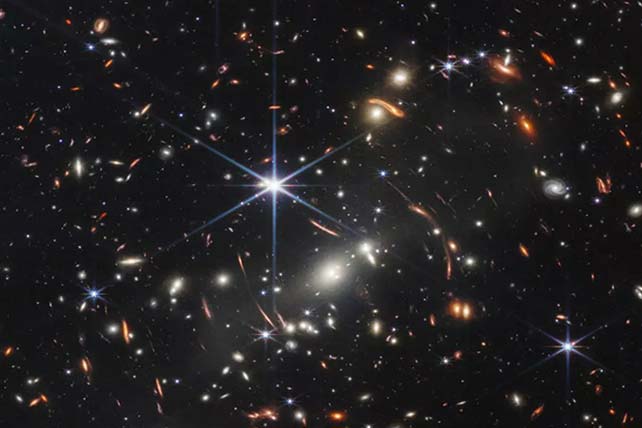Like Faulkner, he hopes Christians take a healthy dose of perspective from the Webb telescope’s findings as they relate to the Bible.
“Theologians could not control the geography of the heavens, as much as they wanted to,” he said, referring to Bible scholars of the past who claimed that Scripture placed Earth at the center of the universe.
“They were wrong,” he said. “This leads us to a question of how to exegetically, correctly expound on … a beautiful harmony between science and Scripture. But you have to understand Scripture contextually.”
Block also agreed that despite the number of planets to be discovered, “we should not be surprised if we find that life on Earth is unique.” But he added that such a determination in no way diminishes God’s role as Creator.
“God, in His providence, loves creating, just like [He does] flowers and daisies and fish. I wouldn’t be surprised if God made billions of other planets, but ours is unique.”
RELATED: Astronaut Victor Glover Brought His Bible, Communion Cups to Space Station
While believers may see the Webb telescope’s images as undeniable proof of God’s existence, Block said many will simply not see it that way.
“In general, no matter what images you put in front of people who deny God’s existence, they will choose to not see God’s handiwork,” he said. “Jesus Himself performed miracles right in front of the crowds and those crowds rejected the miracles. Coming to faith is a deeply personal experience.”
For his part, Faulkner knows of people who believed in creation before becoming believers.
“One was an atheist who looked at the evidence and realized there must be a Creator,” he said. “About a week later he had a moment of realization that if there was a Creator, He must expect something of him.
“It there’s a Creator, we better pay attention to who He is because there are eternal consequences at stake,” Faulkner said. “He became a Christian shortly thereafter. Most scientists, I believe in their hearts, know that if they reach that conclusion that they have to take that next step. Most are so committed to naturalism that they can’t bring themselves to that conclusion.”
RELATED: The Fault That Is (Not) in Our Stars
Faulkner believes in a Young Earth approach to Creationism, a position not shared by Block. However, both agree that the evidence for God cannot be ignored.
“There are many Christian astronomers. We may disagree on the age of creation, but we respect each other and see God’s handiwork,” Faulkner said.
“I have secured an even greater degree of excitement in looking at these images towards God and His creation,” Block said. “It gives me a greater degree of wonder, of mystery, of awe and in this time of war and pandemic, a greater sense of purpose.”
This article originally appeared at Baptist Press.

